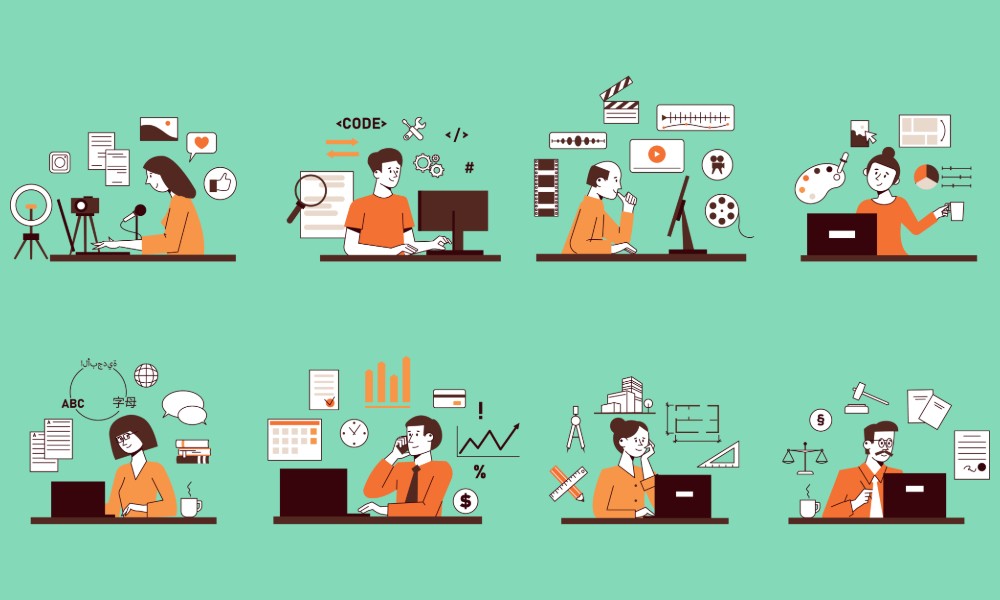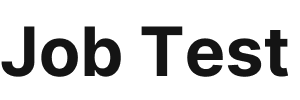Free Career Placement Test With Immediate Results (AI-Powered)

Take Career Explorer Quiz for Free Online
Start the TestA Personal Journey of Career Discovery
In a sleek office building in downtown Seattle, Sarah Chen stares at her computer screen, her fingers hovering over the keyboard. She's not writing code or analyzing market data – she's taking a career assessment test that will supposedly reveal her ideal profession. Like millions of others in today's rapidly evolving job market, Chen is turning to sophisticated personality algorithms to guide her career path. "I've been in tech for five years," she says, "but something feels off. I needed a more scientific way to figure out what I should be doing with my life."
The Booming Market of Career Assessment Technologies
Welcome to the brave new world of career exploration, where artificial intelligence and psychological science converge to help people navigate their professional futures. These aren't your grandmother's aptitude tests – modern career assessment platforms use machine learning algorithms trained on millions of data points, analyzing everything from personality traits to work preferences with unprecedented accuracy. The industry has exploded in recent years, with the global career assessment tools market expected to reach $5.5 billion by 2025, according to recent market research.
The Science and Reliability of Modern Career Assessments
Beyond Simple Questionnaires
But as these tools become increasingly sophisticated and widely adopted – with over 80% of Fortune 500 companies now using personality assessments in their hiring processes – a crucial question emerges: How much should we trust algorithms to guide our career decisions? The answer, according to experts, is more nuanced than you might expect. Dr. Jennifer Martinez, an organizational psychologist at Stanford University, explains: "The best modern career assessments aren't making decisions for you – they're providing data-driven insights that complement human judgment."
Sophisticated Algorithms and Improved Reliability
The science behind these assessments has come a long way since the days of simple multiple-choice questionnaires. Today's leading platforms, such as CareerExplorer, employ complex algorithms that analyze hundreds of variables across personality traits, skills, interests, and values. The reliability of these tests has improved dramatically, with top platforms achieving consistency ratings above 0.88 – suggesting their results are highly reliable when retaken over time. This level of sophistication has caught the attention of both job seekers and employers, who increasingly view these assessments as valuable tools in the hiring process.
Challenging Traditional Notions of Career Matching
Beyond Simple Personality Stereotypes
Perhaps most intriguingly, these modern career assessment platforms are challenging traditional notions of personality and professional success. "We're finding that the relationship between personality traits and career satisfaction is far more complex than previously thought," says Dr. Robert Kang, lead researcher at the Career Development Institute. "It's not just about matching extroverts with sales jobs anymore. The algorithms are identifying subtle patterns that challenge our assumptions about who succeeds in which roles."
Corporate Adoption and Performance Improvement
The impact of these tools extends far beyond individual career decisions. Companies are increasingly incorporating personality assessments into their hiring and development processes, with some reporting up to 25% improvement in employee performance over three years. Major corporations like Google, Microsoft, and Amazon have developed sophisticated assessment frameworks that combine traditional interviews with personality insights to make more informed hiring decisions. This shift represents a fundamental change in how organizations think about talent acquisition and development.
Navigating the Challenges and Controversies
The Risks of Algorithmic Career Guidance
However, the rise of algorithmic career guidance hasn't been without controversy. Critics argue that over-reliance on these tools could lead to a kind of professional pigeonholing, where individuals feel constrained by their assessment results rather than empowered by them. "These tests should open doors, not close them," argues Dr. Maria Valdez, a career counseling expert at Columbia University. "The danger lies in treating them as destiny rather than data points."
Success Stories of Algorithmic Insights
The most effective use of career assessments, experts say, lies in combining their insights with human judgment and real-world experience. Take James Morrison, a former accountant who took a career assessment that suggested he might excel in creative fields – a result he initially dismissed as absurd. "I thought the test was broken," he recalls. "But it made me reflect on how much I enjoyed the creative problem-solving aspects of my accounting work." Today, Morrison runs a successful consulting firm that helps companies develop innovative financial strategies, effectively bridging his analytical skills with creative thinking.
The Future of Career Assessment Technology
Emerging Technologies and Personalization
The future of career assessment technology appears even more promising. Emerging platforms are beginning to incorporate real-time labor market data, skills forecasting, and even predictive analytics about future career paths. Some companies are experimenting with virtual reality simulations that allow users to "test drive" different careers before making major professional changes. These advancements suggest that career exploration tools will become increasingly sophisticated and personalized in the years ahead.
A Holistic Approach to Career Development
For job seekers like Sarah Chen, the key lies in using these tools as part of a broader career exploration strategy. "The assessment helped me understand myself better," she reflects, "but it was just the starting point." Chen's test results suggested she might excel in roles combining technology and human interaction – insights she used to transition from software development to product management, where she now leads teams in creating user-centered technologies.
Conclusion: Balancing Data and Personal Passion
The rise of algorithmic career guidance represents a fundamental shift in how we approach career development. As artificial intelligence continues to evolve, these tools will likely become even more integral to professional decision-making. However, the human element remains crucial. "The best career decisions," Dr. Martinez reminds us, "come from combining data-driven insights with personal intuition and real-world experience."
Recommendations for Using Career Assessments
For those considering taking a career assessment, experts recommend approaching the process with both openness and skepticism. Look for platforms with proven reliability scores, consider multiple assessment tools rather than relying on a single test, and most importantly, use the results as a starting point for deeper exploration rather than an endpoint. In the end, while algorithms can provide valuable insights, the most successful career paths are those that align with both data and personal passion – a combination that no algorithm alone can fully capture.
